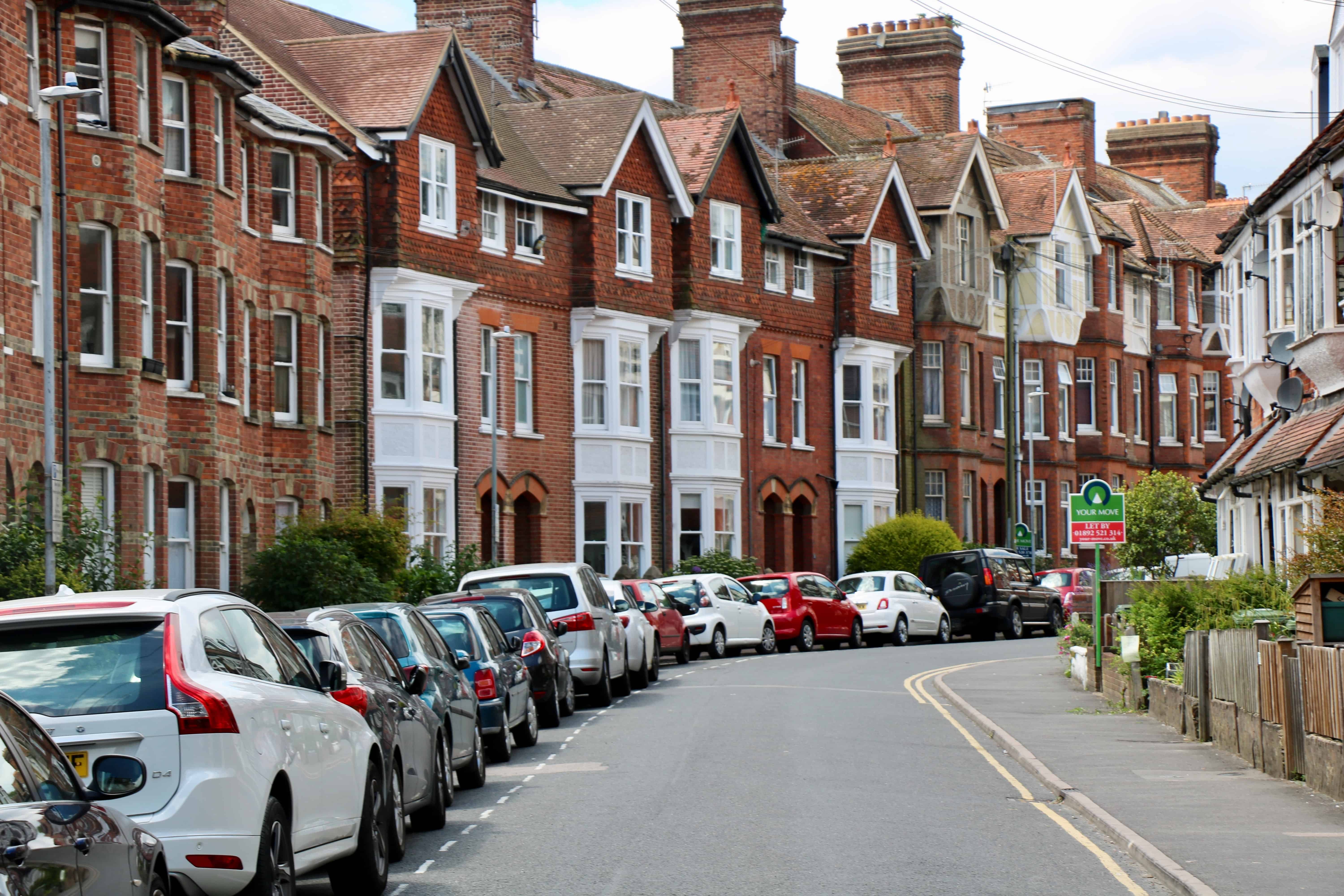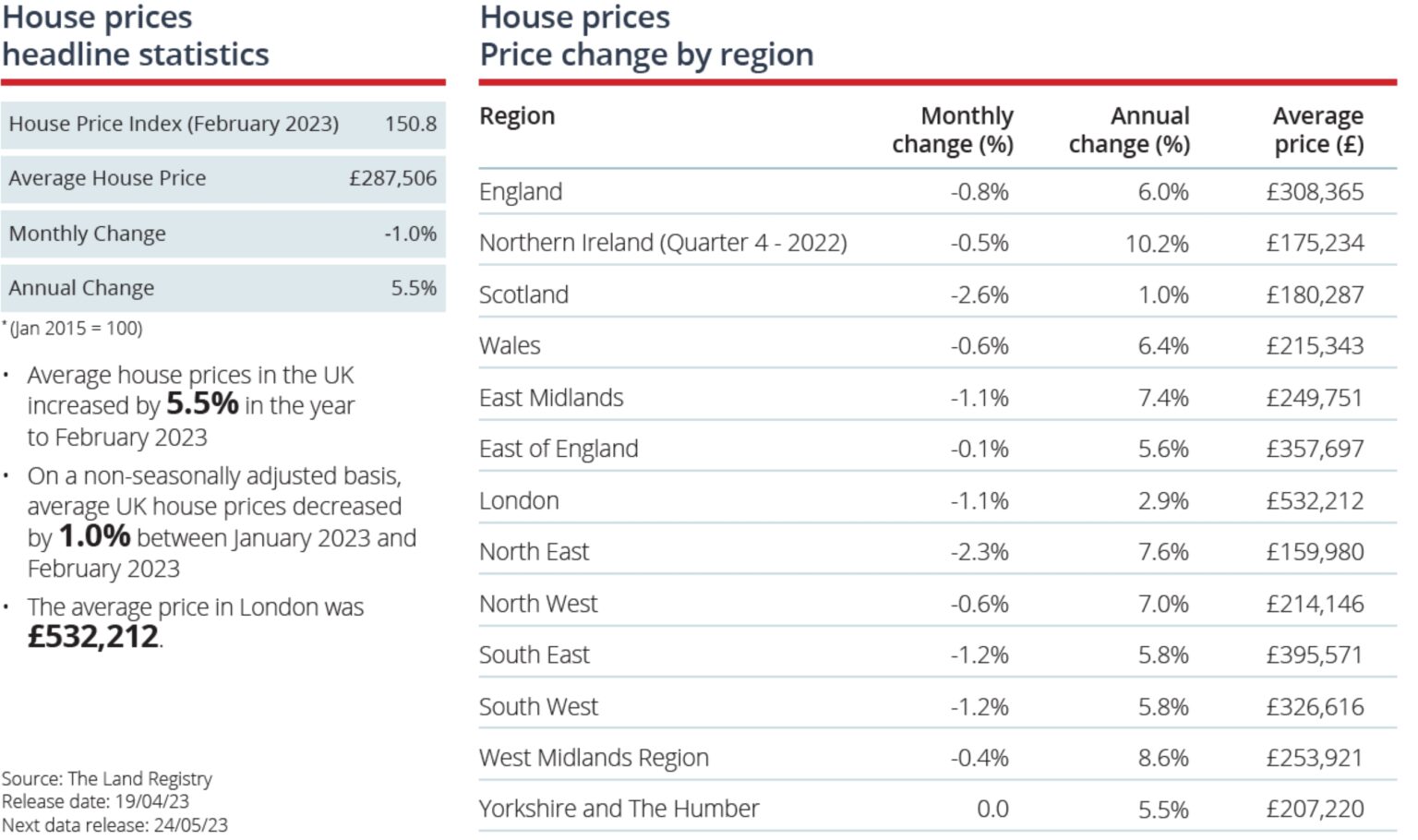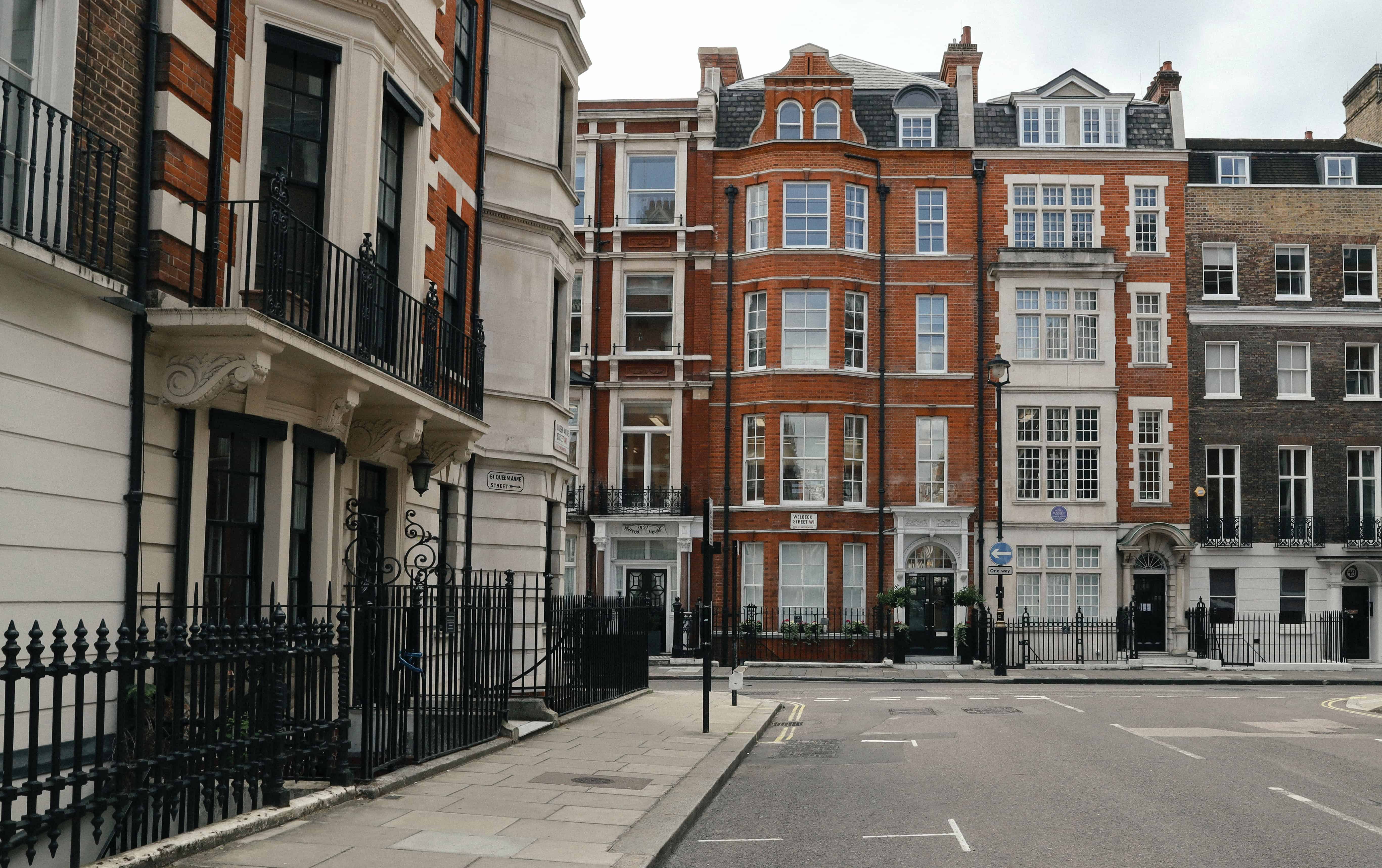Residential market update
Demand, sales and new listings all remain in negative territory, according to the latest UK Residential Survey from the Royal Institution of Chartered Surveyors (RICS), with agreed sales dropping to -31% this month, below the -25% recorded in February.
New buyer enquiries, meanwhile, were down by a headline net balance of -29% in March, virtually unchanged from a reading of -30% a month earlier. This downturn is consistent across the UK, with nearly all regions posting a negative return.
Near-term expectations suggest this pattern is set to continue, although the long-term outlook is more positive. For the next twelve months, the net balance for sales expectations came in at +1%, the first time this measure has been out of negative territory since March 2022. A separate report from Savills suggests that demand is slowly recovering, with new mortgage approvals rising to 33% below the pre-pandemic average in February, up from 41% below in January.
On the supply side, the volume of fresh listings coming onto the market fell slightly in March according to RICS respondents, with a net balance of -6%, compared to -4% the previous month. In contrast, the Savills report states that new instructions surged in March, with data from TwentyCi noting the supply of homes on the market rose to 25% above the pre-pandemic average.

More million-plus sales in 2022
Properties valued at over £1m made up 3.21% of all residential property sales in 2022, according to the Land Registry, compared with 2.75% a year earlier.
The figure has almost doubled since 2019 (1.78%), led mostly by a surge in flats and maisonettes, which are attracting the highest average prices in the £1m-plus market. Last year, the average price paid for high-end flats and maisonettes was £1.91m, ahead of terraced (£1.81m), semi-detached houses (1.66m) and detached houses (£1.62m).
Detached houses still dominate the number of sales, accounting for more than half of all £1m-plus sales. Next up is terraced houses (23%), followed by semi-detached houses (13%), and flats and maisonettes (12%).

Race for less space?
The number of people looking to downsize has risen notably since last September, new research by Savills shows, with more than half of agents seeing an increase in the number of downsizers on their books.
According to Savills, ‘right sizers’ are the biggest group of homeowners currently considering a move, with 41% of those respondents saying they were hoping to downsize.
Andrew Perratt, Head of UK Residential at Savills said, “Equity-rich older homeowners are some of the best placed to move in today’s market as they are less likely to be impacted by higher mortgage costs… Our downsizer vendors are telling us that they will prioritise using the extra equity to help family with their finances, or to supplement a retirement fund and reduce overheads.”

As a mortgage is secured against your home or property, it could be repossessed if you do not keep up mortgage repayments.
It is important to take professional advice before making any decision relating to your personal finances. Information within this document is based on our current understanding and can be subject to change without notice and the accuracy and completeness of the information cannot be guaranteed. It does not provide individual tailored investment advice and is for guidance only. Some rules may vary in different parts of the UK. We cannot assume legal liability for any errors or omissions it might contain. Levels and bases of, and reliefs from, taxation are those currently applying or proposed and are subject to change; their value depends on the individual circumstances of the investor. No part of this document may be reproduced in any manner without prior permission.





